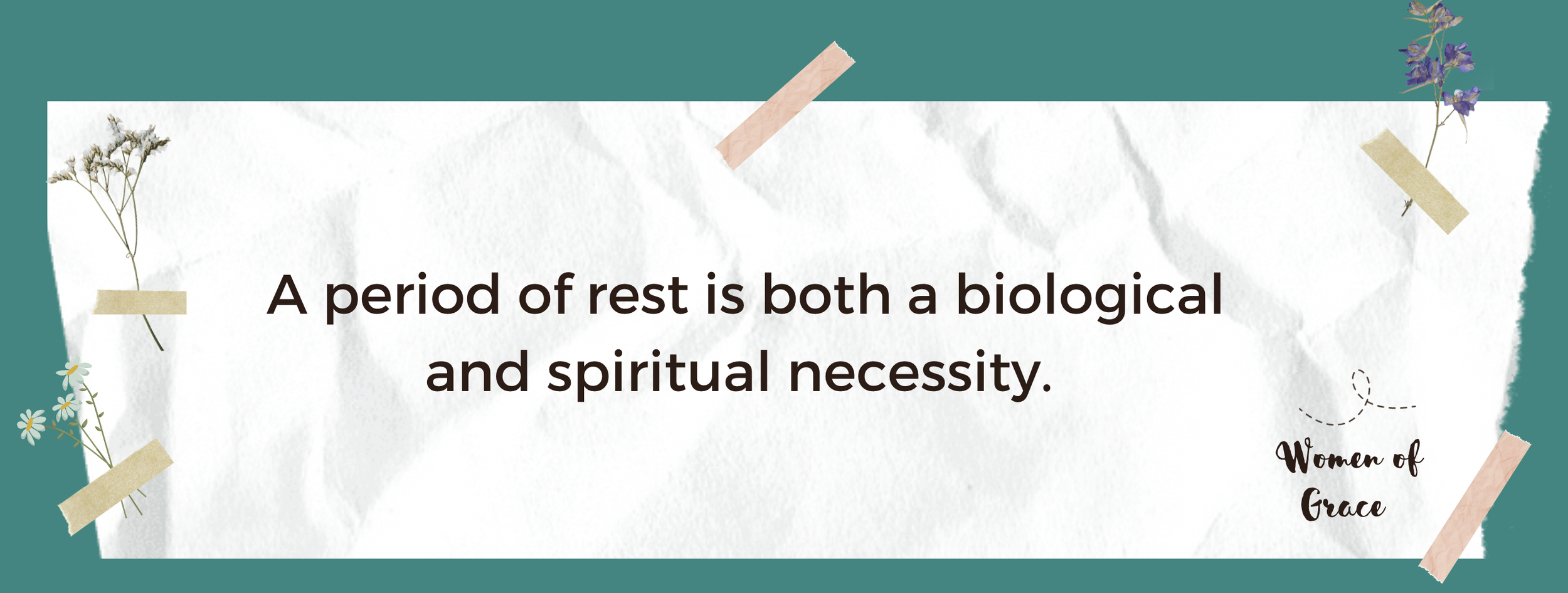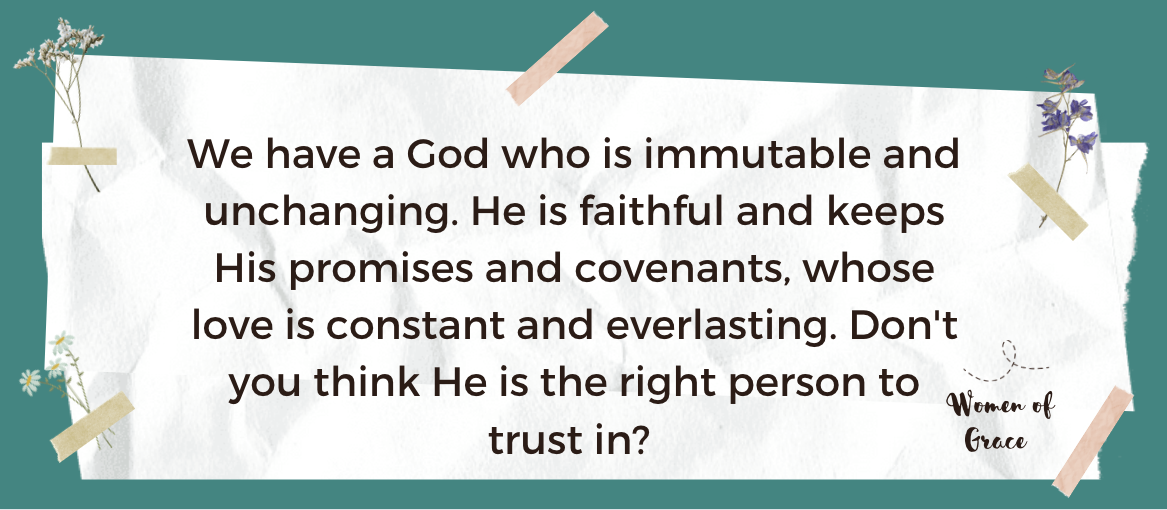Finding and Cultivating Rest in God (Part 1)
This was originally a breakout session by Chan Yoke Meng at the Women of Grace event on 14 May 2022. This is an edited version of her transcript and is the first of two parts.
How do our days go? We have conversations with people, perform tasks for school, for work, for the family, for ministry; attend meetings and focus on responsibilities.
Perhaps we don't realize how much energy we expend on each activity—we expect that we will always have more at our disposal. Just one additional conversation, one extra phone call, one more trip to the supermarket, one quick meeting—what can they cost?
But they do cost. Each drains another drop of life. After days, weeks, months and years —we collapse, we burn out, but yet we cannot see how it happened. It happened with the hundreds of tasks, responsibilities and events, each of which may have seemed not so hard on the surface but that one after the other used a portion of our lives.
The importance of rest
How important is rest to us frail human beings? Although we are no longer commanded to "remember the Sabbath day, to keep it holy", we are given a promise: "In repentance and rest is your salvation, in quietness and trust is your strength..." (Isa 30:15, NIV).
The Jewish Sabbath begins at sundown on Friday; we Christians typically begin with Sunday worship. It is not just a lifestyle suggestion, but a spiritual precept. In nature, if certain plant species do not lie dormant in winter, there won't be fruit in the spring. A period of rest is both a biological and spiritual necessity.
We will understand the concept of rest using the 5Ws and 1H, and take a closer look at Jesus' own words in Matthew 11:28, where He said, "Come to me, all you who are weary and burdened, and I will give you rest."
What rest?
What rest is Jesus referring to? Jesus speaks of spiritual rest. In the Fourth Commandment, the Sabbath rest is to be kept holy. The Sabbath comes originally from the Hebrew verb, shabbat, which means primarily "to cease or desist". We are to cease not only from work itself, but also from the need to accomplish and be productive, from the worry and tension that accompany our modern criterion of efficiency, from our efforts to be in control of our lives, as if we were God, from our possessiveness, and finally, from the humdrum and meaninglessness that result when life is pursued without the Lord at the centre of it all.
Marva J. Dawn in her book, "Keeping the Sabbath wholly" said that, "Only in the sure knowledge that we don't have to manufacture our success in life by our own efforts can we have the freedom not to be continuously workinng at making our own way." Only when we expereicne this spiritual rest will we be thoroughly set free to rest physically.
Matitiahu Tsevat, a scholar of the Hebrew Scriptures, also insists that "the basic meaning of spiritual rest is an 'acceptance of the sovereignty of God'". We always try to be in control of our lives, but the seventh day observance reminds us that God is the master of time.
When do we rest?
When do we need to rest? God has given us a rhythm of rest. We have one every 24 hours (c.f. Ps 104:19-23) and every week (Gen 2:2-3). God's people were also told to allow the land to rest once every 7 years (Lev 25:4-5).
This rhythm of rest was to allow for fruitfulness. There were also consequences if it was not kept (c.f. Lev 26:33-35).
Who are we to rest in?
With the battle against the coronavirus, we have encountered many false news, wrong perceptions and prejudices. Dr K.C. Quek wrote in the Straits Times about the importance of placing trust in the right people and information. False news was aplenty in the Internet and media, and the writers and speakers were those who claimed to have authority and credential, but they were not among those who had all the essential medical information. In the news too, we often find reports about the alarming number of people who have fallen prey to scammers who cheated them of millions of dollars. As a result, it is not easy to trust others these days. Who are the "right people and information" to trust?
More importantly, who is the God that we turn to? We have a God who is immutable and unchanging. He is faithful and keeps His promises and covenants, whose love is constant and everlasting. Don't you think He is the right person to trust in?
Where can we find this rest?
God's word reminds us that we have a place of eternal security in God's sanctuary. A sanctuary is a place that we can run to and where we can feel secure. Where is this?Jeremiah 17:12 speaks of a glorious throne set on high from the beginning as our sanctuary. It is from the beginning and it will continue to the end!
Jeremiah 16:19 also calls this sanctuary "my strength and my stronghold, my refuge in the day of trouble". It is a place of security, sanity and stability for us all. God has made us to be a people that are to rest in Him, to find our security, trust and confidence in Him.
Read the second part here.
--
Other articles in this series and related articles:



